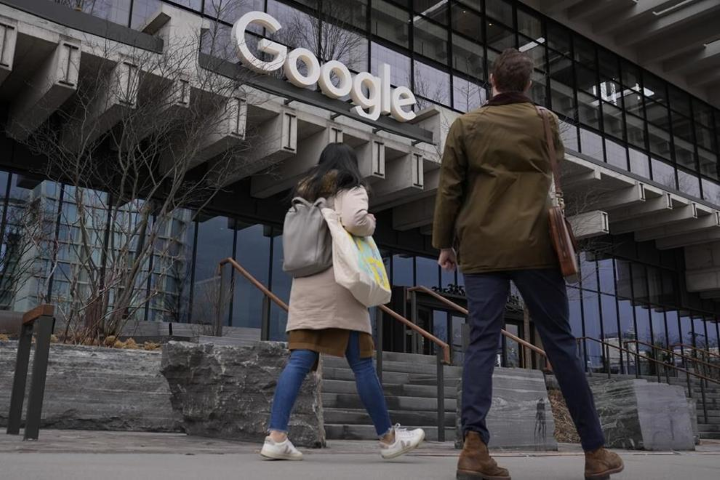
People arrive at the recently opened Google building in New York, Feb. 26, 2024. The U.S. Justice Department's double-barrelled antitrust attack on Google's dominant search and Apple's trendsetting iPhone is reviving memories of another epic battle that hobbled Microsoft before it roared back to yet again become the world's most valuable company. The Canadian Press
In a crucial antitrust trial scrutinizing Google's dominance in the digital landscape, U.S. District Judge Amit Mehta expressed skepticism about the feasibility of a viable competitor emerging to challenge Google's supremacy in the search engine realm. As the trial's closing arguments commenced, Judge Mehta engaged in a discourse with Google's chief litigator, John Schmidtlein, pondering the financial and data hurdles for a potential rival to develop a search engine capable of rivaling Google's prowess.
Mehta underscored the daunting task ahead for any contender to amass the resources necessary to compete effectively with Google. Against the backdrop of Google's staggering $96 billion operating profit in the preceding year, primarily generated from its stronghold in digital advertising and its near-monopoly over the U.S. internet search market, Mehta questioned the absence of significant attempts by competitors to enter the market and challenge Google's dominance.
The trial also delved into the dynamics of default search engine settings on smart devices, a pivotal aspect under scrutiny. Federal prosecutors alleged that Google maintains its hegemony by investing billions annually in securing default search contracts, notably with tech giants like Apple. Mehta probed the stickiness of default settings, citing examples of user behavior on platforms like Microsoft's Edge browser, which predominantly default to Bing despite Google's presence.
Google staunchly defended its position, attributing its success to technological superiority rather than anti-competitive practices. Schmidtlein emphasized Google's commitment to providing the best service, refuting allegations of misconduct.
The proceedings also scrutinized the contractual agreements between Google and companies like Apple, with Mehta questioning the routine nature of renegotiations and the responsibility of competitors to invest adequately in challenging Google's dominance.
As both the Department of Justice and Google present their closing arguments in Washington, D.C., observers await Judge Mehta's ruling, expected in late summer or early autumn. Should the court find Google in violation of antitrust laws, subsequent proceedings will determine measures to curtail its market power.
This case echoes the landmark antitrust trial against Microsoft in the 1990s, underscoring the profound implications for a tech giant whose products wield immense influence over global consumers.















